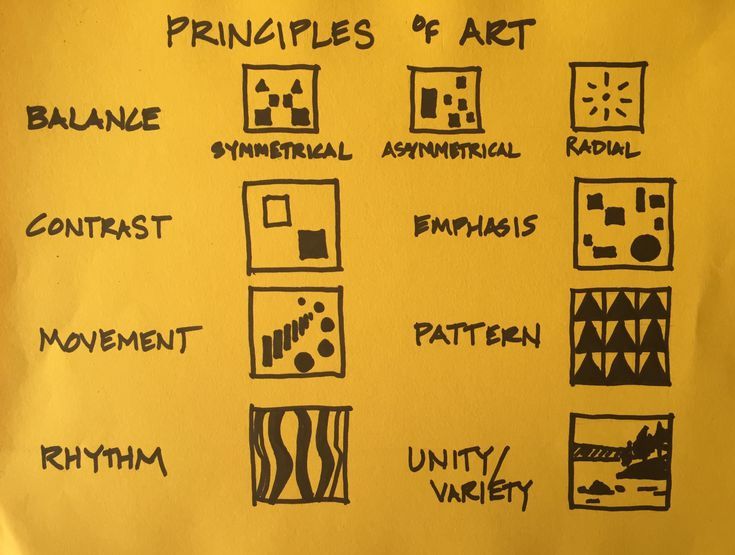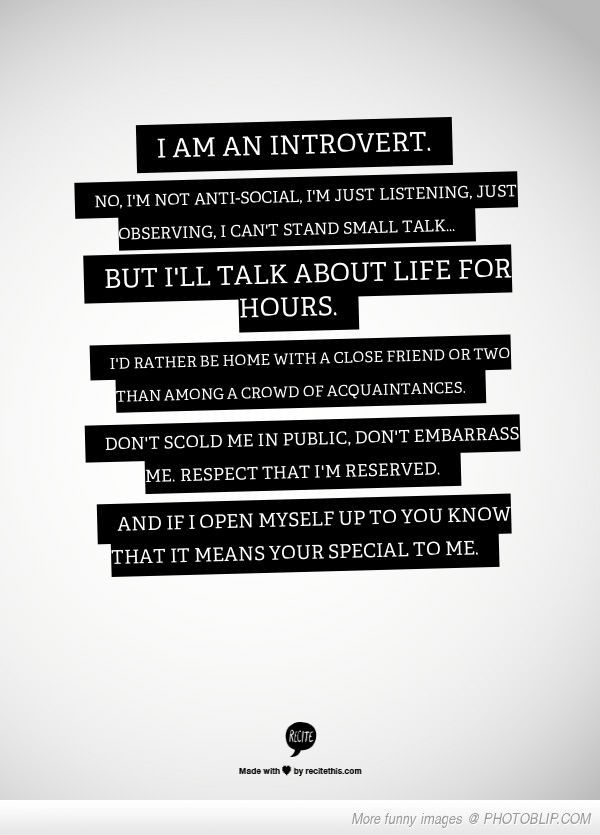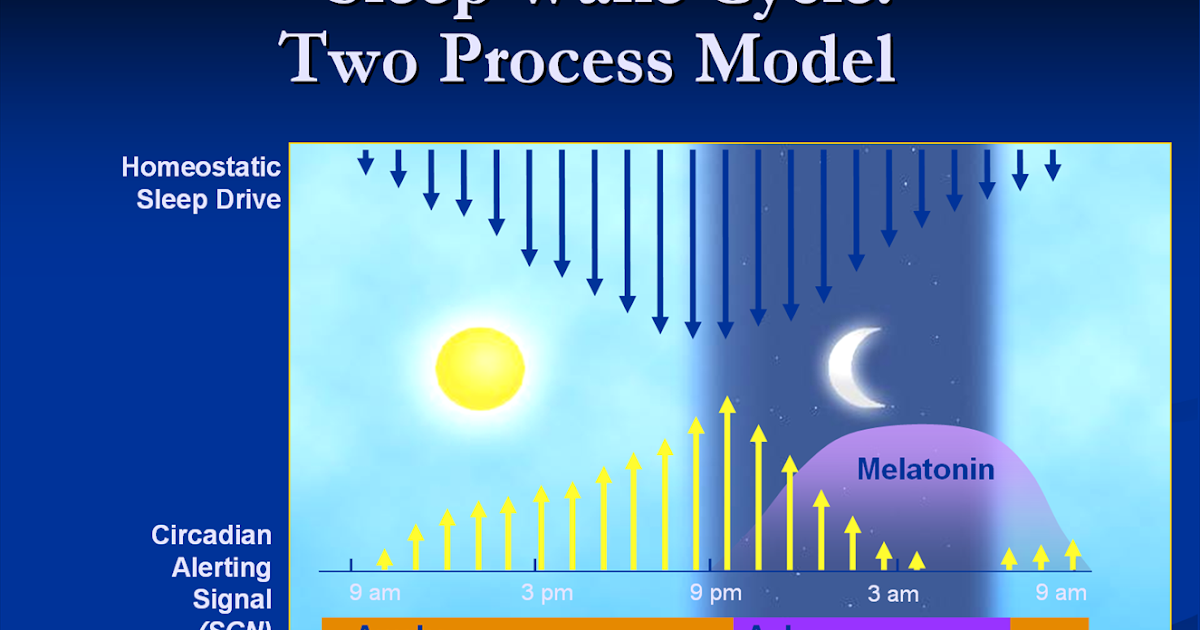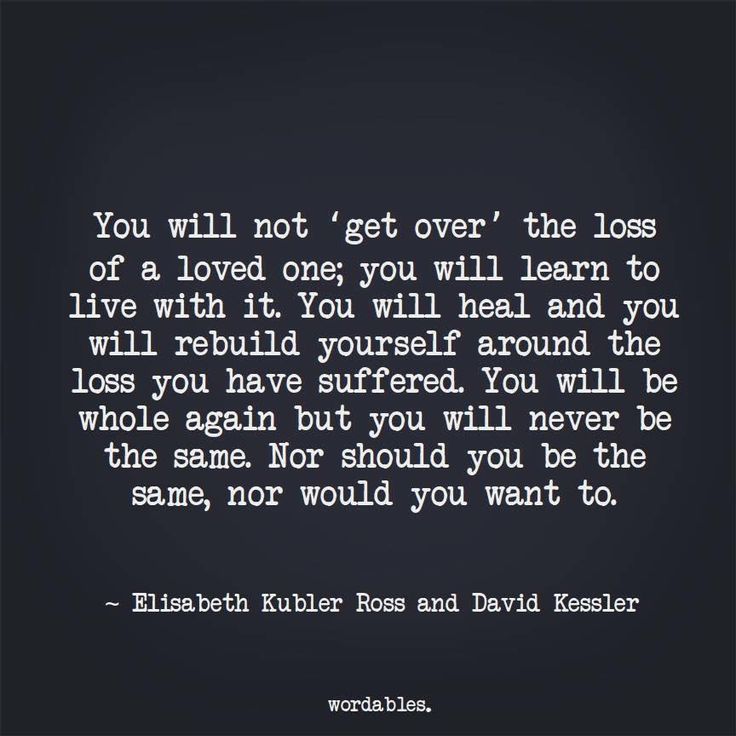What to do if you hate your parents
I Hate My Parents: Is That Normal?
Many people have close relationships with their parents — in fact, some consider their mother or father their best friend. But that isn’t always the case.
There’s a less fortunate narrative: Some people hate their parents. They don’t just lack that connection or disagree with their parents from time to time; instead, they despise their mom, dad, or both.
Is this normal? Is it normal to hate your parents? Plus, what are some underlying causes for this hate?
Why Do I Hate My Parents?The cause of hate can vary from one individual to the next, but in most cases, the parents have mistreated (physically, verbally, and/or emotionally) their child. It’s normal and expected to despise your parents if they’ve mistreated you — whether they intentionally abused you, held you to unrealistic and harmful expectations, or forced you to live a life you also hated. But what about in other scenarios?
Say you have perfect parents: Despite their dedication to raising you and loving you as their child, you don’t feel that same love for them. You feel hate instead. Is that normal? This isn’t as common, but that doesn’t mean you’re abnormal. There is most likely a hidden cause behind these negative feelings and the best way to combat the hate is to get to the bottom of it. Consider the following possible underlying causes:
- The desire for independence. You may simply desire or be seeking more independence, and your relationship with your parents is consequentially suffering. This typically happens a lot with age. When I moved back home for the summer after my freshman year of college, I expected a greater degree of independence and more flexibility and freedom from my dad. However, it was as if I returned to my home as a teenager in high school. This definitely hurt my dad and I’s relationship and had we not respectfully talked about the issue, it could still be suffering today.
- A phase of rebellion. A lot of teenagers go through a period of rebellion and parents never know the best way to handle it—it’s tricky and also troublesome because it can either strengthen or, more often than not, damage the relationship.
 If parents respond with punishment and scorn, then it can certainly result in the child’s loathing.
If parents respond with punishment and scorn, then it can certainly result in the child’s loathing. - Media exposure. Your relationship can even be affected by the type of TV shows or movies you’re watching. You may see a slightly different or more desirable parent-child relationship portrayed on screen and wish that your relationship with your parents was more like it. This can lead to unrealistic expectations and deep resentment.
- Differing morals and/or lifestyles. While our parents typically raise us with their ideals as the backbone of our growth, we don’t always take after their belief systems or lifestyles. This can cause significant strain on your relationship if your parents object to your choices or if your differences are so different that they create big issues. For example, a family that is devoutly Catholic may have a problem with their son declaring he doesn’t believe in God or even deciding to date someone who doesn’t believe in God.

Do any of the above resonate with you? As we mentioned earlier, the reason you hate your parents might differ from the reason someone else hates their parents. However, you might be able to trace your resentment back to one of the above causes.
I Hate My Parents: What Do I Do?If you hate your parents, you might be feeling panicked about what to do next. First, stay calm. Remember that it’s normal to have negative feelings toward your parents and other family members. Then, follow a few tips for navigating your next move, which will require first making one decision: whether you want to salvage your relationships or cut contact with your toxic parents. If that’s not possible or you don’t wish to make amends, then here are a few pieces of advice for you:
- Move out of the house. If you’re still living with your parents, it’s time to move out (if you’re 18 of course). While this is easier said than done, it’s important to get out of the unhealthy living situation.
 Talk to a friend about looking for an apartment together. Or, consider finding a place by yourself. Living alone might give you the space and freedom you’re searching for.
Talk to a friend about looking for an apartment together. Or, consider finding a place by yourself. Living alone might give you the space and freedom you’re searching for. - Limit interactions with your parents. Prior to moving out and after moving out, don’t interact with your parents unless you have to. If you’re still living with them, it’s probably best to respond when they speak directly to you, in order to keep the peace, but otherwise, keep to yourself. When you no longer live with your parents, it’ll be much easier to keep these interactions to a minimum.
- Be the bigger person. If your parents are known to strike up uncomfortable conversations or arguments, do your best not to retaliate. Be the bigger person. Matching their volume or aggression will only fuel the fire and make matters worse. Again, do your best to keep your interactions with them minimal and focus on getting some much-needed space from them.
- Secure a support system.
 You might be all anger right now — but sometime in the future (probably soon), you’ll likely succumb to other negative emotions like sadness. It’s tough to end a relationship and remove a loved one from your life, even if that relationship wasn’t the healthiest. Be sure to talk to your loved ones or a therapist about how you’re feeling and get the support that you need.
You might be all anger right now — but sometime in the future (probably soon), you’ll likely succumb to other negative emotions like sadness. It’s tough to end a relationship and remove a loved one from your life, even if that relationship wasn’t the healthiest. Be sure to talk to your loved ones or a therapist about how you’re feeling and get the support that you need. - Focus on you. Stop focusing on your hate for your parents and start focusing on yourself. You can become the person you want to be, despite the resentment that you harbor toward your parents and the cause of that hate. Start spending time with people you love and doing things that fill you with joy.
If you are interested in mending your relationships with your parents, then you must sit down with them and have a heart-to-heart. Hate is a strong word and stems from strong feelings. If your relationships with your parents have gotten to this point, it’s time to share your feelings with them.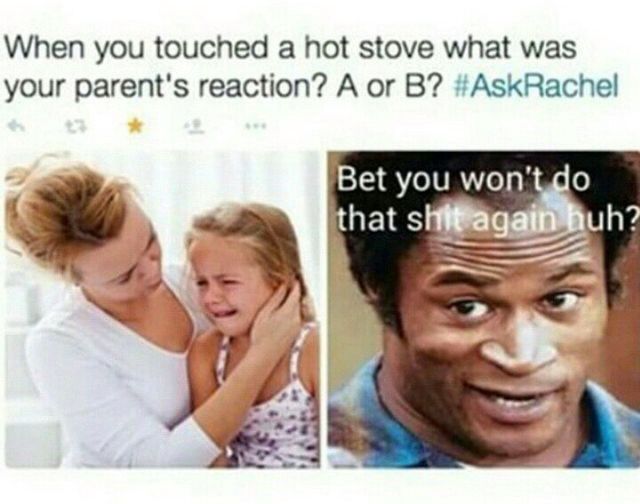 Be sure to listen to what they have to say, too.
Be sure to listen to what they have to say, too.
It might also be helpful here to consider moving toward neutrality rather than telling yourself you have to like your parents. “Trying to accept the imperfections within your relationship will be much easier at first than jumping straight into trying to cultivate positive feelings,” says Emily Simonian, Licensed Marriage and Family Therapist (LMFT) and Head of Learning at Thriveworks. “You can move toward neutral feelings toward your parents by trying to acknowledge things about them that are not all bad, even if they’re small things that are unrelated to you, like how your mom is dedicated to her career, or your dad is a good cook. Teaching yourself to think in this way will create a more balanced perspective that could lessen your negative feelings over time.”
If you need or would like a mediator’s help in repairing relationships with your parents, consider going to family therapy. A therapist serves as that mediator, offers an outsider’s point of view, and comes with professional expertise to help you improve your relationships. You can book a family therapy session here.
You can book a family therapy session here.
Horrible parents: a survival guide | Family
There’s no such thing as a perfect parent – all of us who have children understand that, and we all buy, gratefully, into the concept of “good enough”. But is there such a thing as “horrid parenting”? Do mothers and fathers exist whose aim in life is to crush the children they brought into the world, whatever it takes?
The psychologist Alyson Corner and journalist Angela Levin believe there is. They have launched a website, myhorridparent.com, to help the victims – ie offspring – of these individuals to survive, so they can move on with their own lives and, eventually, become good parents themselves. The idea for the site came, says Alyson, from her realisation as a therapist that there were parents she saw in clinical situations who seemed determined to put their child or children down – “to diminish them, to rubbish them” – and she started to think about how she could support them. “The first time it hit me was when a mother told me her toddler was exactly like his father, who was physically abusive. She was saying he was aggressive and angry; and I could see how that attitude was going to make the little boy’s life difficult.”
“The first time it hit me was when a mother told me her toddler was exactly like his father, who was physically abusive. She was saying he was aggressive and angry; and I could see how that attitude was going to make the little boy’s life difficult.”
So where’s the line between being good enough, and being horrid? “Almost every parent can think of something they have done in haste and regretted later,” says Alyson. “But the crucial difference is that you apologise; the capacity to stand back, to recognise you have made a mistake, and to say sorry, is key.” Horrid parents don’t do this because they haven’t done what is the top requirement of good enough parenting, which is to put their child at No 1 on their priority list. For them, someone or something else is No 1 – it might be themselves (narcissistic parents) or it might be an anger or obsession or need of their own, that eclipses the needs of their child.
On their website, Alyson and Angela detail the characteristics of types of horrid mothers: controlling mothers (who want to run their child’s life entirely), overpowering mothers (who make decisions for you without asking), angry mothers (who find fault with everything you say and do) and neglectful mothers (who are emotionally distant and fail to prioritise your needs) among them. They classify fewer types of horrid fathers, but these include competitive fathers (who can never let their children win at anything), angry fathers (who are frightening and create wariness in their children) and over-submissive fathers (who may leave home, immerse themselves entirely in a new life, and discard links with their past life, including their children).
They classify fewer types of horrid fathers, but these include competitive fathers (who can never let their children win at anything), angry fathers (who are frightening and create wariness in their children) and over-submissive fathers (who may leave home, immerse themselves entirely in a new life, and discard links with their past life, including their children).
Sometimes, they say, all the children in a family are affected; at other times, one child is singled out for this treatment, by one or both parents. And the damage these parents do can be insidious: while some bad-mouth their children, others camouflage their true feelings by praising their offspring in front of others. “The gap between how these parents behave in public and how they behave in private, can be considerable,” says Alyson.
My bugbear with the website, though, is this: why trivialise something as fundamentally dysfunctional as bad parenting; and, more importantly, why create a forum that demonises parents, when surely the first ambition should be to get them to change their behaviour and become all any of us can ever hope to be, ie good enough? Alyson says that demonising parents isn’t the intention: the point, she says, is to target teens and young adults, and the concept of horrid parents, linking to Horrid Henry, seemed a good way in.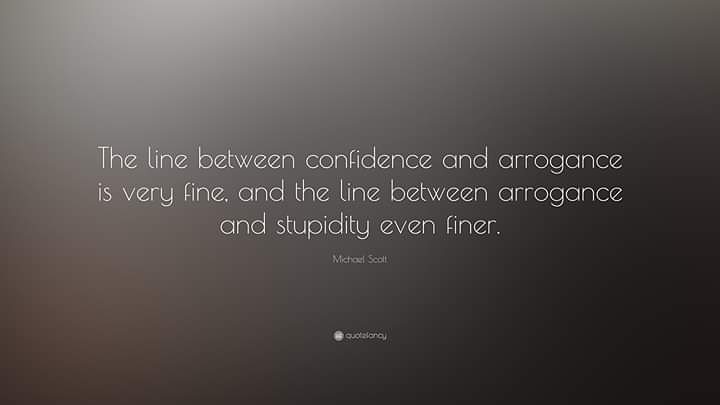 Angela, though, says she doesn’t think horrid is such a bad word to use; people who have been the victims of bad parenting understand exactly what she and Alyson are talking about, she says, and she is one of those victims.
Angela, though, says she doesn’t think horrid is such a bad word to use; people who have been the victims of bad parenting understand exactly what she and Alyson are talking about, she says, and she is one of those victims.
She was completely unpredictable, and I never had a single intimate or personal conversation with her
The website has been built not just on Angela’s clinical observations but also her experience: her childhood, she says, was made miserable by her late mother, Florence, who was charming in company but cruel to her only child in private. For decades, says Angela, she kept her mother’s cruelty to herself; and she believes there are others out there who suffer in silence from cruel parents, because to denounce them – even to friends – is taboo.
Angela has no explanation as to why her mother constantly put her down, telling her daughter she had never given her a moment’s pleasure and saying she should have called her “Devil” instead of Angela. “She would turn, suddenly and instantly and painfully; she was completely unpredictable, and I never had a single intimate or personal conversation with her,” she says. Alyson agrees that it’s often impossible to know what has caused the inability to parent adequately. With some people, she says, it may be because of mental health problems; with others it might be to do with the pregnancy having been accidental, with having had a bad relationship with the child’s other parent, or any number of other unresolved issues from the past.
“She would turn, suddenly and instantly and painfully; she was completely unpredictable, and I never had a single intimate or personal conversation with her,” she says. Alyson agrees that it’s often impossible to know what has caused the inability to parent adequately. With some people, she says, it may be because of mental health problems; with others it might be to do with the pregnancy having been accidental, with having had a bad relationship with the child’s other parent, or any number of other unresolved issues from the past.
But the ambition of the website, she says, is about looking forward; because people who have been on the receiving end of bad parenting need to move on with their own lives, and may need help to do it. “The saddest thing we hear is from people who say: ‘I had such a difficult time with my own parents that I don’t dare risk becoming a parent myself,’” says Alyson. “From many others, we hear about very raw experiences, even years later, and people hold grudges and feel they can’t move away from the legacy of being badly parented. ”
”
The bottom line, says Alyson, is this: none of us can change our parents’ behaviour, just as we can’t change the behaviour of anyone else in our lives; but we can change things in our own life. “We suggest that, if you’re still young and still living at home, you try to take yourself out of the situation where you have rows with your parents.” A lot of people who have been in touch since the launch of the website have described a situation in which they’re no longer in touch with a difficult parent – but she wouldn’t recommend that as a way forward: “I often hear from people who have cut themselves off from their parent or parents, but that tends to make you feel very guilty. My advice would be to keep the relationship going if at all possible. When you’ve got a partner in your life, take that person with you when you visit your parents, because you need their support.”
Having difficult parents can give you strategies for dealing with tough situations and friction in the rest of your life
Angela, who is married with three children and has had a successful career as a journalist, says much of her life has been lived out in response to the difficulties she always had with her mother. “When my mother was elderly and had dementia, I visited her every week. And people who knew us thought I was mad; but I did it because the last thing I wanted was to be like her. I wanted to behave properly, and I always have wanted that.”
“When my mother was elderly and had dementia, I visited her every week. And people who knew us thought I was mad; but I did it because the last thing I wanted was to be like her. I wanted to behave properly, and I always have wanted that.”
And that, says Alyson, is the real point here: she and Angela hope their website will offer hope to people who have difficult parents; hope that they will come through; hope that they will eventually be able to accept or even perhaps forgive their parents; hope that they will be able to live their lives relatively unscathed; and hope that they will be able to go on to be better parents to their own children. “We’re convinced there are positives as well as negatives from being in this situation,” says Alyson. “Having a difficult parent can instil a powerful need to prove yourself; and it can give you strategies for dealing with tough situations and friction in the rest of your life.” Angela agrees: “I can spot bullying a mile off: I vowed that no one would ever talk to me again the way my mother did. And I’m very aware of the characteristics in me that could make me like my mother – I make sure I’m not like her. You can choose to be something else.”
And I’m very aware of the characteristics in me that could make me like my mother – I make sure I’m not like her. You can choose to be something else.”
1. Stay calm. When a horrid parent starts criticising you it can be frightening and infuriating. Taking a strong line won’t help. Instead, prepare yourself by practising ways of staying calm and controlled in a challenging situation. We recommend slow, mindful breathing or meditation. These will help you take soothing breaths when you are being shouted at and help release tense feelings. If you are being brutally criticised, try silently replacing your parent’s negative comments with something more realistic and positive.
2. Learn to accept your situation. It’s often hard to know what mood your horrid parent might be in and you can feel you are treading on eggshells. Some days might be OK, others can be dreadful, with shouting and unfair accusations. Working out your life story can help make some sense of what is happening.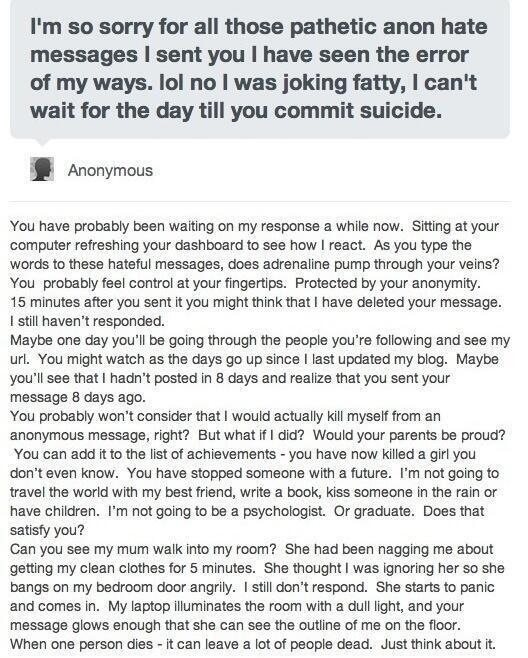 It might even enable you to work out why your parent behaves as they do.
It might even enable you to work out why your parent behaves as they do.
3. Don’t retaliate. Arguing back will only make things worse. It will fuel the row, which will last longer, leave you feeling awful and it will not change anything. Instead, work out simple ways of easing the situation. Offer to make a cup of tea, talk with a soft voice and avoid direct eye contact. If, at any stage in your life, you feel tempted to challenge your unkind parent or seek revenge, remember that you can’t win and the chance of achieving anything positive is minute. Nor do you want to behave like them. Let the past fade, don’t hold on to grudges, keep your distance and instead concentrate on becoming a better person yourself.
Don’t believe you are the bad person your parent claims. If you are self-critical, tell yourself everyone makes mistakes
4. Look to your future with hope. You can become the person you want to be in every area of life, with or without your horrid parent’s approval. It’s understandable to worry about trusting people, so take things slowly. Don’t get involved with someone who is like your horrid parent or because they are an escape route. You may also been concerned about turning into your difficult parent once you have children. It’s unlikely if from the start you give your baby loving attention, encouragement and praise. Do remember too, children exist in their own right.
It’s understandable to worry about trusting people, so take things slowly. Don’t get involved with someone who is like your horrid parent or because they are an escape route. You may also been concerned about turning into your difficult parent once you have children. It’s unlikely if from the start you give your baby loving attention, encouragement and praise. Do remember too, children exist in their own right.
5. Believe in yourself. Don’t believe that you are the bad person your parent claims you are. Make a list of your qualities and abilities and aim to be the best you can in everything that you do, at work and with your friends. If you tend to be self-critical, tell yourself that everyone makes mistakes and the important thing is to learn from them and do better next time.
6. Talk to someone you trust. Living with a difficult parent can be very isolating. You may not have siblings to confide in and your friends may get on well enough with their parents. You may feel disloyal talking about your situation and feel you are in some way to blame for their behaviour. Do test out friends before you confide in them. Or, depending on your age, you could try talking things over, carefully at first, with a sympathetic teacher, older relative you can trust, or your partner.
You may feel disloyal talking about your situation and feel you are in some way to blame for their behaviour. Do test out friends before you confide in them. Or, depending on your age, you could try talking things over, carefully at first, with a sympathetic teacher, older relative you can trust, or your partner.
7. Look after yourself. Most things in life seem worse when you don’t take care of yourself. Eating healthily, exercising and getting a good night’s sleep will all make you feel better and stronger. Give yourself the occasional simple treat: for example, a long soak in the bath, curling up with a good book, or going out with a friend.
Extracted from myhorridparent.com
Hatred of parents: what to do with this feeling
84 860
A person among peopleOlder generation
Having matured and looking back, we understand that our parents were unfair to us. What do we perceive as especially painful?
Physical or psychological abuse. The child lives in constant tension, the parent turns into his enemy, from whom he must defend himself and wait for a blow. All problems in such a family are solved by the elders by the right of the stronger - physical punishment or constant screaming.
The child lives in constant tension, the parent turns into his enemy, from whom he must defend himself and wait for a blow. All problems in such a family are solved by the elders by the right of the stronger - physical punishment or constant screaming.
We master the model of relationships with the world in communication with parents. They teach to understand and express their feelings. If in the family all our attempts to express ourselves and our desires were suppressed, then we leave in adulthood with the inability to openly talk about what worries us, and a lump of resentment towards our parents.
Absence nearby. Often, after a divorce, the father may stop communicating with the child, and the mother can go headlong into a career or building a personal life. Children are left in the care of their grandmother, and as they grow up, they perceive this situation as a betrayal.
Formal communication. The parent lives with the child, but satisfies only his primary needs. He prefers to pretend that since the children are full and healthy, everything is fine in their lives. If a child tries to talk about a conflict situation at school or with friends, then the mother or father, not wanting to experience psychological discomfort, devalues his feelings and experiences: “The senior teacher is right,” “Deal with the offender yourself,” “You exaggerate.”
He prefers to pretend that since the children are full and healthy, everything is fine in their lives. If a child tries to talk about a conflict situation at school or with friends, then the mother or father, not wanting to experience psychological discomfort, devalues his feelings and experiences: “The senior teacher is right,” “Deal with the offender yourself,” “You exaggerate.”
You can not call your parents, punish with silence, but even such an expression of anger does not give relief
Growing up, we feel anger towards such parents. Someone arranges violent showdowns, which in most cases lead to nothing - parents are not ready to admit they were wrong. They, as a rule, have already reached an old age, which is characterized by rigidity and unwillingness to change.
Moreover, the transference projection begins when the mother or father blames the children for everything. They feel guilty, but in order to get rid of it, relatives and acquaintances are told about what unbearable children they have, in whom they have invested all their strength.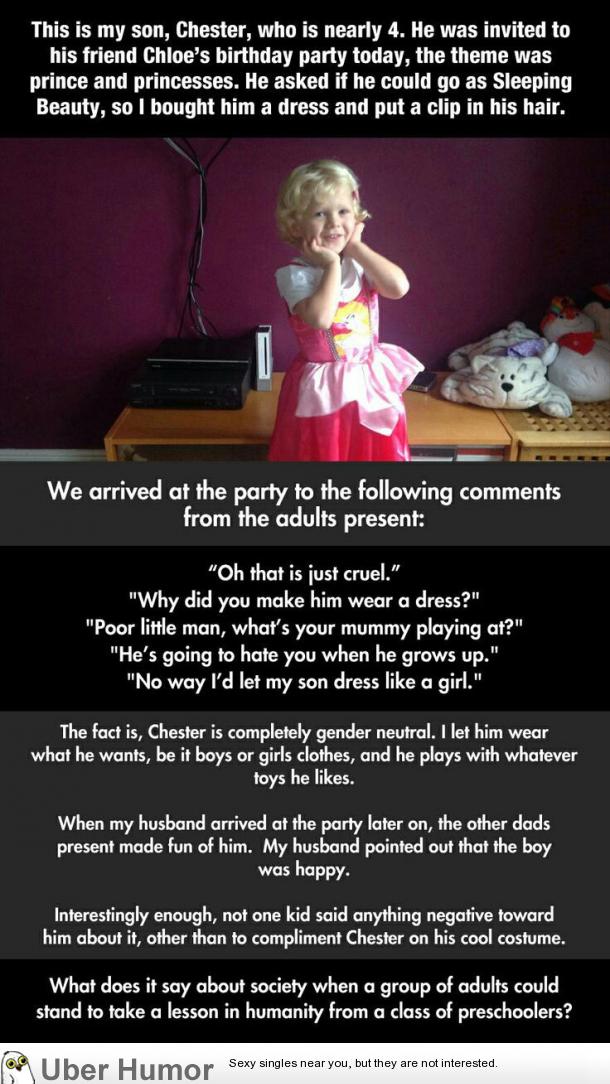 So the parent saves himself from living unpleasant feelings, shifts the blame to adult children, thereby aggravating their pain and resentment.
So the parent saves himself from living unpleasant feelings, shifts the blame to adult children, thereby aggravating their pain and resentment.
You can not talk to your parents about your feelings, do not call them, punish them with silence. However, even such an expression of anger does not give relief, because we continue to accumulate it in ourselves, waiting for repentance.
Acknowledge your feelings
There is a high probability that the conversation fails to find a common language and fruitless attempts to achieve this will be painful. It is important to say everything that you feel. Not in order to gain understanding, but in order to comprehend painful experiences and gradually part with them.
You can do this in conversation with a psychologist, a close friend, an understanding relative, or even alone. It is necessary to throw out the accumulated aggression verbally, and then describe your experiences on paper. After that, we may feel guilty, especially if we said bitter words to the parent directly.
The mechanism of rationalization is activated when we try to justify everything: “Mom herself had a hard time, so she was rude to me.” Remind yourself that you and your parents are different people, and it's important to allow yourself and them different feelings. Including resentment and bitterness, if these are the consequences of their upbringing. You cannot force yourself to feel love and gratitude for anyone, and your parents are no exception.
How to communicate further
Accept that the parent will most likely not change and you will not get sincere words from him. At the same time, the relations of enemies take a lot of strength and energy. Take them to a formally friendly level. Call, meet, let it be neutral conversations that do not concern your life.
Awareness of a child's hurt is important. Without doing the difficult but necessary inner work, we run the risk of transferring negative feelings to a partner with whom we play out the scenario of childhood.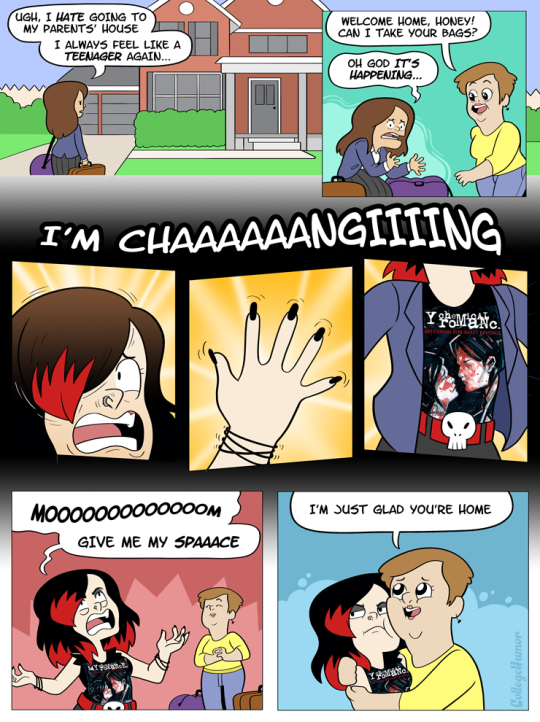
About the expert
Veronika Stepanova , psychotherapist. Her channel.
Text: Sabina Safarova Photo Source: Getty Images
New on the site
“I have a great husband, and I miss my ex who hit me”
“My husband left for another country, leaving me alone with a small child and a mortgage »
How should beggars dress in order to get more? Discovery of psychologists
How to read metaphorical cards? Introducing a new deck and explaining how to work with it
How to strengthen relationships: advice from the creator of "36 Questions to Fall in Love"
Who are the "new" fathers and are they all right?
Welcome to the dark abyss of the male brain!
5 books that will save you from the autumn blues
I hate my parents!!! Help ((((
#1
#3
#4
Here is a phrase from there: "It takes a lot of love to hate.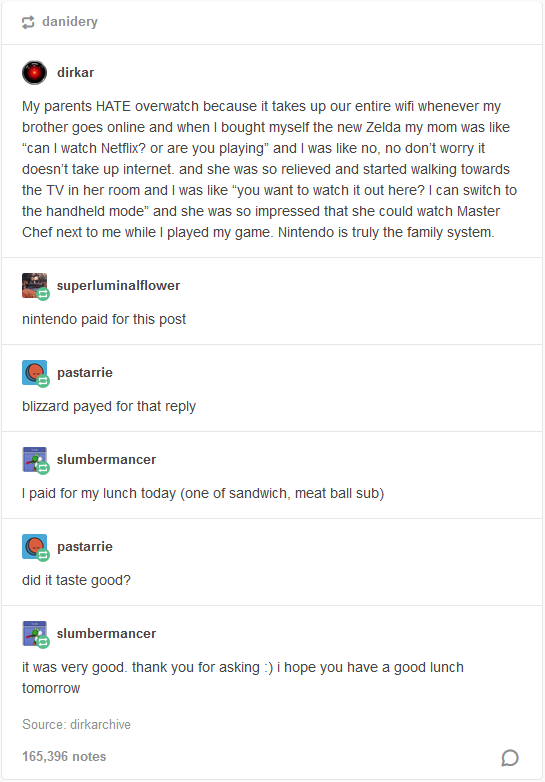 Hatred is a strong but disappointed love"
Hatred is a strong but disappointed love"
#7
#8
Guest
Now many teenagers hate parents. I have the impression that they would love to kill their parents, but do not do it because who will support them. Same thing with my daughter. Hates me. For what? They adored her; And now she yells that she hates. For what? I can not understand. Once she told me that I would die anyway (and I had oncology). After that, something turned over in me. Now I know that children are ungrateful, and I do not demand. But dear - you will have to answer for everything.
#9
#10
I have the impression that they would love to kill their parents, but do not do it because who will support them. Same thing with my daughter. Hates me. For what? They adored her; And now she yells that she hates. For what? I can not understand. Once she told me that I would die anyway (and I had oncology). After that, something turned over in me. Now I know that children are ungrateful, and I do not demand. But dear - you will have to answer for everything.
Same thing with my daughter. Hates me. For what? They adored her; And now she yells that she hates. For what? I can not understand. Once she told me that I would die anyway (and I had oncology). After that, something turned over in me. Now I know that children are ungrateful, and I do not demand. But dear - you will have to answer for everything.
#11
Madam Gritsatsuyeva
God, how scary! I read you and don't know what to say? Maybe we (adults) are to blame for something? Maybe at one time they just fell in love with a child? Maybe you've been overindulged to your own detriment? I'm shocked !
#12
#13,0003
#14
Guest
Guest 7, your daughter obviously has such an age, she will grow wiser with age. If parents are good, how can you hate them? It means they missed something somewhere .. I love my own, but at a distance. Somehow they always tried to “break” me, “subjugate” me or something, to impose their vision of the world, they did not take into account my opinion, and they plucked evil. That's how I remember now: they come home from work and start barking, and they themselves are with each other like a cat with a dog. I now live separately with my husband and I am glad that I have reduced communication with them.
If parents are good, how can you hate them? It means they missed something somewhere .. I love my own, but at a distance. Somehow they always tried to “break” me, “subjugate” me or something, to impose their vision of the world, they did not take into account my opinion, and they plucked evil. That's how I remember now: they come home from work and start barking, and they themselves are with each other like a cat with a dog. I now live separately with my husband and I am glad that I have reduced communication with them.
#15
#16
Guest
When we were children, there was not even a hint to argue with father or mother. They always fulfilled their duties (no one forced them), although it seems that the parents did not devote much time to us, because they were always at work.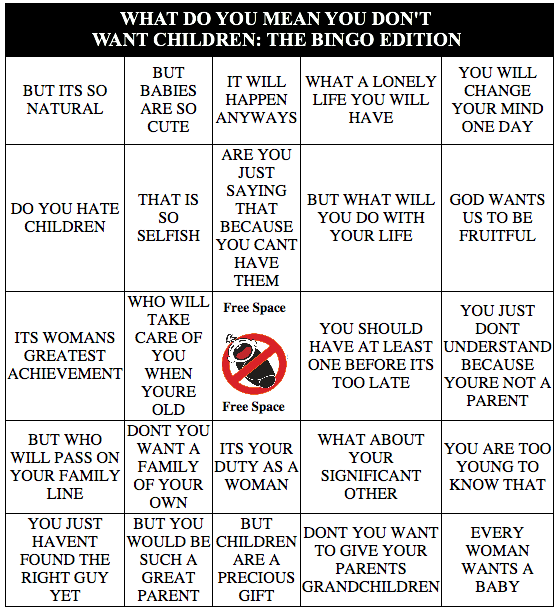 They did all the household chores themselves, washed themselves, cooked themselves, rarely watched TV. Now the children do not understand that they need to help around the house, stroke, wash the dishes, they perceive us as servants, they will sit on the couch and stare at the TV or tablet, and my mother barely collects mugs around the house after working with a sore back, but cooks dinner. Of course, I'm exaggerating, not all children are like that. Of course, this is not always the case with us. But why now you need to ask for everything, everything through reluctance, through whims. I don't understand why. Sorry, boiled over.
They did all the household chores themselves, washed themselves, cooked themselves, rarely watched TV. Now the children do not understand that they need to help around the house, stroke, wash the dishes, they perceive us as servants, they will sit on the couch and stare at the TV or tablet, and my mother barely collects mugs around the house after working with a sore back, but cooks dinner. Of course, I'm exaggerating, not all children are like that. Of course, this is not always the case with us. But why now you need to ask for everything, everything through reluctance, through whims. I don't understand why. Sorry, boiled over.
#17
Guest
If the children had told me so, they would have flown 3 letters, but you are sorry.
Author, try to see at least a little bit the life of your parents from the other side, try to understand what they want from you. It is not necessary to hate, but to establish contact, because it is easy to lose parents. Today they are, as you think bad. And tomorrow they will not be at all and there will be no one to come to you in difficult times. Take the first step yourself, try to talk. In adolescence, it seems to everyone that their freedom is restricted, they demand a lot, they are humiliated. But this is not so, it’s just that your parents have already lived through those moments, they are trying to protect you from something, to warn you, maybe your parents have not achieved some heights, but they want you to achieve something and not repeat their fate. Your parents want you well, maybe they misreport you, but in any case, they love you.
It is not necessary to hate, but to establish contact, because it is easy to lose parents. Today they are, as you think bad. And tomorrow they will not be at all and there will be no one to come to you in difficult times. Take the first step yourself, try to talk. In adolescence, it seems to everyone that their freedom is restricted, they demand a lot, they are humiliated. But this is not so, it’s just that your parents have already lived through those moments, they are trying to protect you from something, to warn you, maybe your parents have not achieved some heights, but they want you to achieve something and not repeat their fate. Your parents want you well, maybe they misreport you, but in any case, they love you.
looks like you're lazy. They didn't even state the situation. And for sure you demand mater blessings from your parents. and you don't want to do anything. Everyone understood everything from the title of the topic.
#21
#22
#23
Guest
God, how scary! I read you and don't know what to say? Maybe we (adults) are to blame for something? Maybe at one time they just fell in love with a child? Maybe you've been overindulged to your own detriment? I'm shocked !
I do everything around the house Ya. absolutely everything! And frankly, it seems to me that they use me as a servant .. My mother has the only daughter, and everyone is amazed and tells her why you don’t help her, but she only thinks of her husband .. it’s even disgusting to call her father . .
#24
ssafi
We do everything around the house I. .absolutely everything! And to be honest, it seems to me that they use me as a servant..I am the only daughter of my mother, and everyone is amazed and tells her why you don’t help her, but she only thinks of her husband..it’s even disgusting to call her father..
Experts Woman.ru
-
Maria Burlakova
Psychologist
41 answers
-
Nikita Nosov
Practicing psychologist
29 answers
-
Galimov Ildar
Family Psychologist
67 answers
-
Vyacheslav is rich
Certified practitioner.
..
306 responses
-
Nidelko Lyubov Petrovna
Practicing psychologist
227 answers
-
Alla Buraya
Psychologist
35 answers
-
Nikitina Anna Viktorovna
Oriental practitioner specialist
31 answers
-
Maxim Sorokin
Practicing psychologist
616 responses
-
Daria Gorbunova
Practicing psychologist
142 answers
-
Novikova Olga Dmitrievna
Practicing psychologist for .
..
13 answers
#25
#26
#27
#28
Uninvented stories
-
My husband and his children and grandchildren piss me off...
356 answers
-
0003
-
Such a salary - I don't want to work
341 answer
-
A lie 22 years long. How to destroy?
673 answers
-
Husband left, 2 months of depression.
.. How will you cope if you are left all alone?
155 answers
#29
SSAFI
I am 24 ... to this day, it would not be so offensive if it was alkal somehow. .on it does it absolutely on a sober head! I threatened him, beat him.. He is afraid of me, afraid that I will tell someone. ..I feel so bad, I envy my girlfriends who have wonderful parents, caring..
#30
Not everyone is lucky with their parents, it's true.
#31
I don’t know, I need to somehow pull myself together . . I’m very nervous, I’m constantly sick .. and this is nothing compared to mental pain .. when I feel bad, my mother won’t even ask what happened? how are you feeling? For her, the main thing is that I do everything around the house, she doesn’t care about the rest ...
Understand that our parents are not always = perfect.
Consider moving to another city, seriously.
#34
I don’t know, I need to somehow pull myself together .. I’m very nervous, I’m constantly sick .. and this is nothing compared to mental pain .. when I feel bad, my mother won’t even ask what happened? how are you feeling? For her, the main thing is that I do everything around the house, she doesn’t care about the rest ...
#37
#38 9000 can you do an analysis?
2 answers
Wedge-shaped defect of teeth
No answers
Help me understand! Why does a mother act so strangely?
2 answers
Guy wants initiative from me
2 answers
A man asks a question about eye color.
1 answer
#39
#40
#41
#42
ssafi
So she doesn't depend on him...he was nobody..she raised him, I say EVERYTHING DOES FOR HIM...Smiles at his every joke..but I can't talk to her I can normally .. I'm so bad with her, fat as she says .. dumb as she calls me! I always want to find an excuse for her, honestly I want .. but how? What to do? I'm honestly afraid of losing her, until some time she was everything to me.

